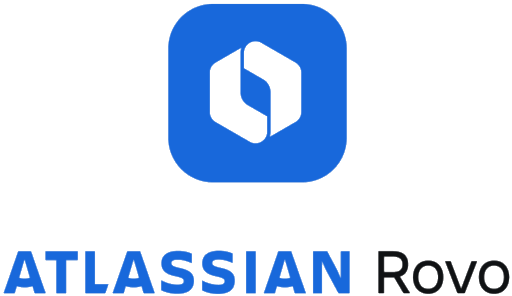Lessons and Warnings from the Original Chatbot – ELIZA
“The thing about an AI is, it’s not human. You can’t get any sense of what it’s like to be one.”
– The Finn from William Gibson’s classic Sci-fi novel, “Neuromancer,” published in 1984.
The current generation of AIs is truly remarkable, even from the perspective of a long-ago former AI researcher like me. These AI assistants have evolved from mere research toys to valuable tools in various domains.
I extensively use ChatGPT to write blogs, develop course outlines, create examples and quizzes, and summarize data. It has become an invaluable time-saving assistant, akin to having a competent intern.
Furthermore, it assists in divergent thinking by allowing me to generate and explore many more ideas than I previously could. Exploring a larger solution space enhances my ability to consider more solutions more rapidly.
However, amidst this remarkable progress, we must also be mindful of the potential pitfalls, such as the loss of human experience and the consequences of built-in bias resulting from blindly accepting computers as decision-makers and conversation partners.
Meet ELIZA
In the fast-paced race towards the remarkable and potentially daunting world of AI assistants, it’s important to pause and recall the lessons learned from one of the pioneers in AI research—Joseph Weizenbaum—and his program ELIZA, often regarded as the first chatbot.
Joseph Weizenbaum developed the ELIZA program in the mid-1960s while working at the MIT Artificial Intelligence Laboratory. ELIZA garnered attention and popularity with its ability to engage users in text-based conversations. By utilizing pattern matching and scripted responses, ELIZA created the illusion of understanding and empathy, sparking interest in human-computer interaction and the potential of AI in simulating conversation. All while running on an IBM 7094 with 32 kilowords of memory.
Emotional attachments?
To Weizenbaum’s surprise, users began forming emotional attachments to ELIZA and even divulging personal and sensitive information during interactions. Despite being aware of ELIZA’s artificial nature, people projected their own thoughts and emotions onto the program.
One incident that deeply impacted Weizenbaum was when his secretary asked him to leave the room during an intimate conversation with ELIZA. As an aside, William Gibson explored this topic in his novel Idoru, where a rock star falls in love with an AI, raising questions about the nature of love, identity and the relationship between humans and AI.
ELIZA’s profound impact on users’ perceptions made Weizenbaum realize that humans are susceptible to developing emotional bonds with machines, even without true understanding or awareness. This realization shaped his critical perspective on AI and its limitations, as explored in his book “Computer Power and Human Reason.”
Lessons from ELIZA
“Computer Power and Human Reason” critically examines the impact of computers and AI on human society, particularly in relation to human values, judgment, and the preservation of meaningful human connections.
Weizenbaum raises concerns about the potential dehumanization and loss of authentic human experiences stemming from an uncritical acceptance of computers as decision-makers and conversational partners. The book cautions against blindly relying on AI without considering its limitations and potential ethical implications.
Several ethical issues highlighted by Weizenbaum are worth pondering.
Oversimplification and reduction of complex issues
First, the reliance on AI can lead to the oversimplification and reduction of complex issues, depriving us of the nuance and critical thinking required for deeper understanding and decision-making.
Dehumanizing human interactions
Second, excessive reliance on technology might dehumanize human interactions, diminishing the authentic emotions, empathy, and understanding that only humans can provide.
Errors, biases, or undisclosed vulnerabilities
Third, blind dependence on AI systems can create vulnerabilities because of errors, biases, or undisclosed vulnerabilities, which may have far-reaching consequences.
Undermining human autonomy
Last, relinquishing decision-making power to machines undermines human autonomy and responsibility, as humans should always remain accountable.
Real-world precedent today
These concerns are not merely theoretical, debated in a second-year ethics course. These are real ethics issues with real-world consequences.
For instance, ChatGPT is known to generate false answers or hallucinate, as evidenced by the viral story of a lawyer who used ChatGPT to draft a brief, only to realize in court that none of the cited precedents were factual (NY Times May 23).
Using AIs as decision-makers in domains like filtering resumes or granting credit can introduce biases perpetuating social inequalities (Time Magazine).
Finally, AIs can make bizarre choices from a human point of view (Guardian May 1 2023).
Are we doomed to repeat history?
There is a saying: those who fail to learn from history are doomed to repeat it.
ELIZA was an experiment. A toy. Our chatbots are not mere toys anymore. With 50 years of AI research and six orders of magnitude increase in computer power, they are powerful tools. The consequence of repeating history will also be correspondingly greater.
Powerful tools can deliver significant benefits but come with powerful consequences. We must learn how to wield them safely. Just like tradespeople spend years mastering tools that could harm them, we should approach AI with a similar mindset.
Similarly, as we navigate this remarkable future, it’s the wise course to learn from the first chatbot and explore Weizenbaum’s “Computer Power and Human Reason.”
The world we need to navigate with AI is not about job loss or even killer robots, but the risk of loss of human agency and accountability. By reflecting on the lessons and warnings from ELIZA and other pioneers in AI research, we can navigate the future of AI more thoughtfully and responsibly, ensuring that the human experience remains at the forefront of technological advancements.
Recommended reading
Additionally, you should delve into the two science fiction novels by William Gibson mentioned in this blog that explore the relationships between AIs, virtual reality, and humanity.
“Neuromancer” (1984) Neuromancer” is a groundbreaking science fiction novel written by William Gibson. Set in a dystopian future, it follows the story of a washed-up computer hacker named Case who is hired for a dangerous heist involving artificial intelligence, virtual reality, and corporate intrigue, ultimately exploring themes of identity, technology, and the blurred boundaries between humans and machines.
“Idoru” (1996), “Idoru” showcases Gibson’s skill in envisioning a future where AI and virtual personalities play significant roles in society, challenging conventional notions of love, intimacy, and personhood
If you are interested in exploring ELIZA, you can access or download various versions of the program from reputable websites and repositories dedicated to preserving and sharing historical software.



